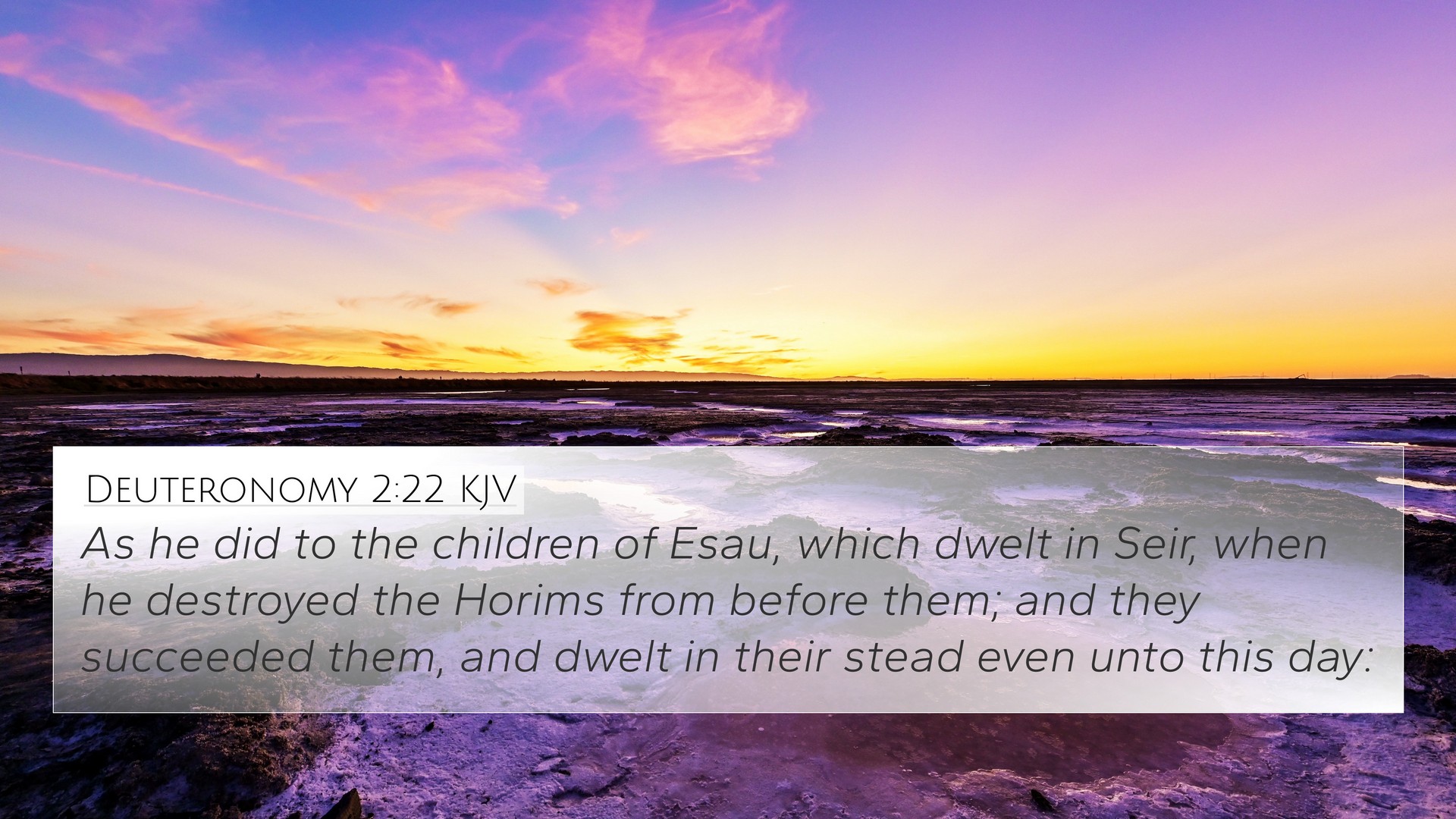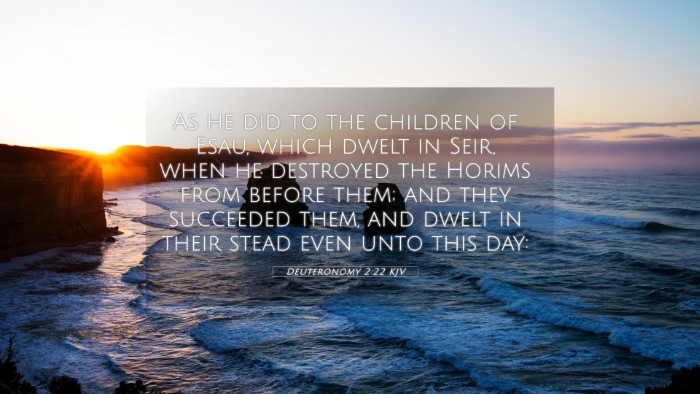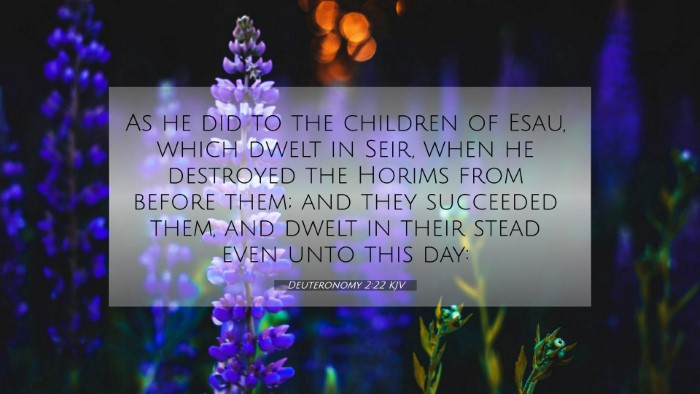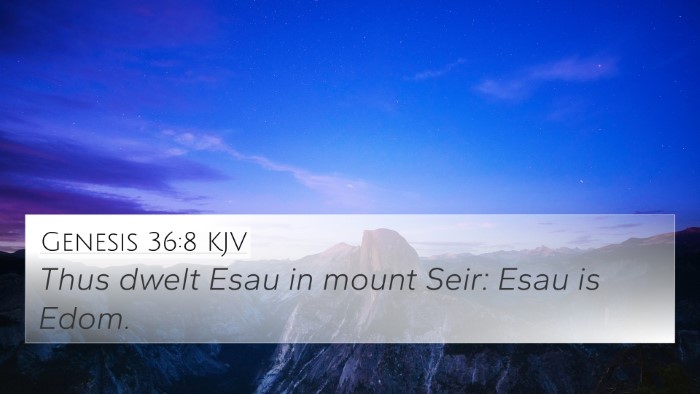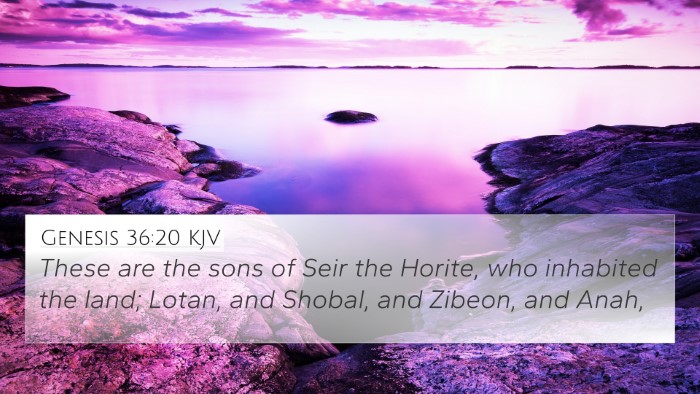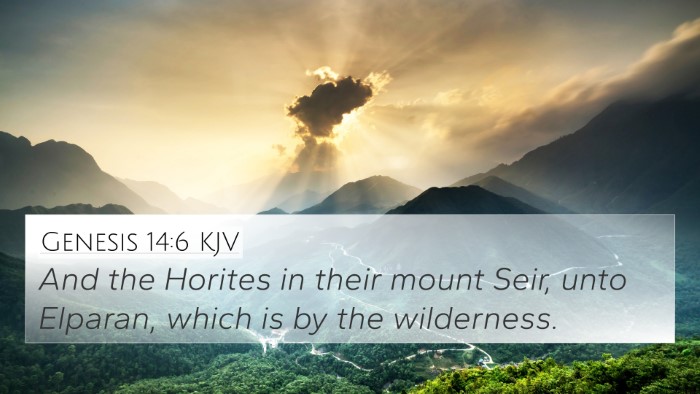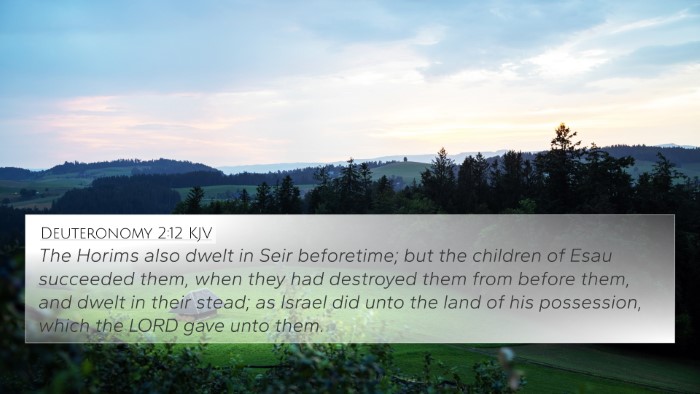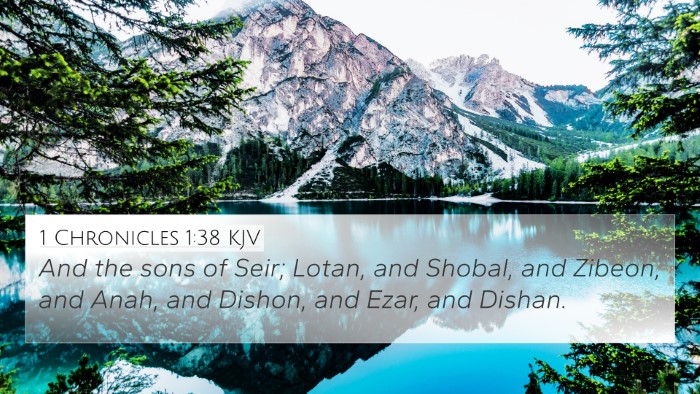Understanding Deuteronomy 2:22
Deuteronomy 2:22 states: “As he did for the descendants of Esau who lived in Seir when he destroyed the Horites before them, and they drove them out and settled in their place even to this day.” This verse reflects God's sovereign acts of judgment and provision for His chosen people, illustrating key themes throughout the Scriptures.
Contextual Analysis
This verse occurs within the broader narrative of the Israelites' journey to the Promised Land. It highlights God's faithfulness in fulfilling His promises and His role as a divine warrior who fights for His people. Understanding this verse requires examining its historical and theological context.
- God's Sovereignty: The verse affirms that God's actions are deliberate and purposeful. As seen in other Biblical passages, such as Psalms 115:3 ("Our God is in the heavens; He does all that He pleases"), this underscores God's absolute control over nations and events.
- Divine Judgment: The destruction of the Horites serves as an example of divine retribution. Similar themes are explored in Genesis 15:16, where God foretells the judgment of the Amorites.
- Divine Provision: Just as God provided for the Edomites by granting them victory, so He makes provisions for His people throughout the Scriptures, highlighting a consistent theme across both Old and New Testaments.
Comparative Verse Analysis
The connections between this verse and others resonate deeply within the Scriptures. Notably, the victory granted to Esau’s descendants over the Horites parallels God's assistance offered to Israel in battles, as seen in Exodus 15:3 ("The LORD is a warrior; the LORD is His name."). This reflects a thematic connection between the judgment of nations and God’s protection over His own.
- Cross-Reference 1: Exodus 23:22 - Explains that God will be an enemy to the enemies of Israel, reinforcing the idea of divine support.
- Cross-Reference 2: Deuteronomy 2:5 - Highlights God’s command to avoid conflict with specific nations, indicating His care in guiding Israel.
- Cross-Reference 3: Joshua 24:11 - Speaks of the battles against various nations, illustrating God's provision for Israel.
- Cross-Reference 4: Romans 15:4 - Emphasizes the importance of Old Testament events for our understanding of God’s character and response.
- Cross-Reference 5: 2 Corinthians 1:20 - Reiterates that all God's promises find their "Yes" in Christ, echoing His faithfulness to His people.
- Cross-Reference 6: Isaiah 40:31 - The promise of renewal and strength for those who hope in the Lord connects to God’s provision throughout history.
- Cross-Reference 7: Hebrews 11:34 - Describes the faith of those who were empowered to overcome adversities, similar to God's empowerment of the Israelites.
Thematic Connections
When studying Deuteronomy 2:22, several important themes emerge that connect this verse to the entirety of Biblical narrative:
- God's Faithfulness: His commitment to His people is evident throughout the Old Testament and reaffirmed in the New Testament.
- Victory in the Lord: The narrative demonstrates that true victory comes from relying on God's strength, as reiterated in Philippians 4:13.
- Judgment against Sin: The destruction of the Horites serves as a reminder of God’s stance against sin, accessible through various texts highlighting God's justice.
Tools for Cross-Referencing
Engaging with the Bible through a lens of cross-referencing enables deeper understanding. Consider the following methods:
- Bible Concordance: A useful tool for finding references related to specific terms within the scripture.
- Bible Cross-Reference Guide: Helps to identify how different passages interact and illuminate each other.
- Cross-reference Bible Study: A method that encourages exploring verses in relation to each other to uncover new insights.
Conclusion
In summary, Deuteronomy 2:22 is a powerful testament to God's sovereignty, provision, and judgment. By exploring its connections to other scriptures, one can gain a much fuller understanding of God's character and His unfolding plan throughout the Bible.
Further Studies: To delve deeper, consider studying how these themes continue to resonate in the New Testament and how they shape our understanding of God’s covenant with humanity.
